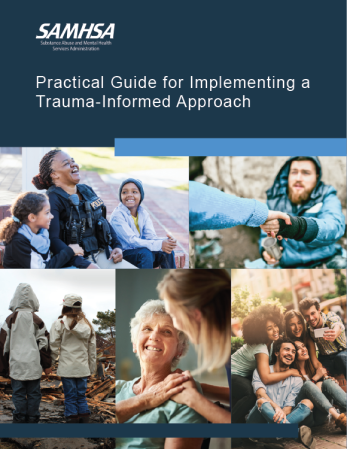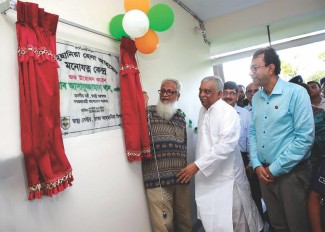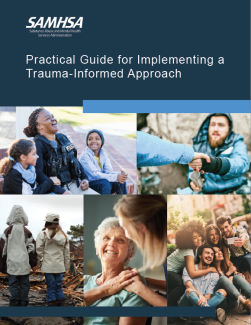Search
Quality Assurance
The application and integration of the best available research, clinical expertise, quality marks and patient preferences to ensure high-quality care in substance use disorders services.
The absence of data on driving under the influence of alcohol in road traffic studies: a scoping review of non-randomized studies with vote counting based on the direction of effects of alcohol policies
Background
Data concerning driving under the influence of alcohol (DUIA) are frequently characterised by their lack of availability, accuracy, or reliability. This inherent limitation poses challenges in the examination of the influence of...
Creating a healthier life: A step by step guide to wellness
The Substance Abuse and Mental Health Services Administration’s (SAMHSA) Wellness Initiative envisions
a future in which people with mental or substance use problems pursue health, happiness, recovery, and a full and satisfying life in the...
Use of Medication for Opioid Use Disorder Among Adults With Past-Year Opioid Use Disorder in the US, 2021
Discussion
Despite guidelines recommending MOUD, approximately 1 in 5 adults with past-year OUD received any MOUD. Furthermore, some groups were substantially less likely to receive MOUD, in particular Black adults, women, those unemployed...
Clinical Supervision in Botswana
Guideline for peer-to-peer workers with opioid use disorder who receive opioid agonist therapy.
I am pleased to present to you the result of the work of our large team: the third version of the guide for peer consultants who work with people who received opioid agonist therapy.
In the guide, we tried to describe our four-year...
Introduction to Forensic Substance Use Evaluation
UNODC conducted Regional Training of Trainers on UTC 20 in Central Asia
The UNODC Regional Office for Central Asia in collaboration with Prevention, Treatment and Rehabilitation Section, UNODC HQ held a Regional Training of Trainers (ToT) on Course 20 – “Populations with Special Clinical Needs” which took place...
Ministro do Interior inaugura hospital especializado em uso de substâncias e transtornos mentais
O Ministro do Interior Asaduzzaman Khan, MP (no sábado, 8 de julho) inaugurou o Ahsania Hena Ahmed Monojotno Kendra com o objetivo de fornecer serviços de tratamento especializado de padrão internacional para pacientes com transtornos...
Center for Global Health - Sri Lanka Participates at UNODC Constructive Dialogue - Vienna
The American College of Science and Humanities and its Centre for Global Health Research and Policy in Sri Lanka participated at the UNODC Constructive Dialogue on Technical Assistance at Vienne, Austria, in person, on 30 May 2023 - 31 May...
Practical Guide for Implementing a Trauma-Informed Approach
The guide specifically focuses on tools and strategies for implementing a trauma-informed approach. This guide highlights the need for organizational assessment of readiness and capacity before implementing trauma-informed approach and...
Projeto Espanhol do Portal de Melhores Práticas em Redução da Demanda de Drogas e Vícios Comportamentais
INTRODUÇÃO: Na Espanha, a oferta de programas de prevenção é muito variada e estruturada, mas hoje o desafio continua sendo como colocar evidências em prática. A Comissão Europeia define uma boa prática como "uma política ou intervenção...
O processo de aplicação de normas de qualidade na prevenção da toxicodependência na Croácia: um estudo de caso
INTRODUÇÃO: A ciência da prevenção e as normas de qualidade da prevenção da toxicodependência na UE e no mundo desenvolveram-se nas últimas décadas. Registaram-se progressos no desenvolvimento da qualidade na Croácia, mas a experiência do...
Implementing Quality Measurement in the Field of Drug Treatment and Harm Reduction: A Case Study in Flanders
BACKGROUND: Implementing quality measurement is still a challenge in the field of drug treatment and harm reduction. In this case study, we investigate which strategies can be used to enhance the implementation of a policy in which quality...
The ASPIRE Standards: Taking a Step Towards Quality Assurance in Drug Prevention in France – A Case Study
INTRODUCTION: In the favourable political climate of the mid-2010s, the standards for Assessment & Selection of Prevention programmes Issued from the Review of EDPQS (ASPIRE) were developed to support project planning in drug prevention.
M...
A Implementação de Padrões de Qualidade (QS) na Comunidade Terapêutica Coolmine
CONTEXTO: A implementação de padrões de qualidade pela Coolmine envolve um período de gestão de mudanças, planejamento estratégico e desenvolvimento de políticas nacionais.
MÉTODOS: Estudo de caso narrativo com foco na política nacional e...
National Implementation of Quality Standards in Prevention and Treatment Services for Substance Use/ Addictions – A Case Study of Cyprus
INTRODUCTION: The Cyprus National Addictions Authority (NAAC) is the main coordinating body for all matters related to licit and illicit substances as well as pathological gambling in Cyprus and it is responsible, inter alia, for the...
Substance Use Disorder Treatment Quality Standards in Lithuania 1992–2022: From Grassroots Initiatives to Nationwide Strategies
BACKGROUND: The implementation of quality standards in the treatment of substance use disorders in Lithuania is not well documented in the literature. AIMS: To describe the process of the development of quality standards from grassroots...
Associação entre ingestão diária de álcool e risco de mortalidade por todas as causas: uma revisão sistemática e meta-análises
Abstrair
Importância Uma metanálise anterior da associação entre o uso de álcool e a mortalidade por todas as causas não encontrou reduções estatisticamente significativas no risco de mortalidade em baixos níveis de consumo em comparação...
Treinamento Online INEP Plus da Indonésia
O ISSUP Indonesia organizou o Curso Online de Introdução à Prevenção Baseada em Evidências (INEP) como um treinamento de nível nacional na Indonésia com 17 participantes. O treinamento, conduzido pela Dra. Kristiana Siste, SpKJ, e pela Dra...
Atitudes de adoecimento mental na educação médica: avaliando o estigma em estudantes de medicina
Abstrair:
Introdução. Os fatores que afetam a qualidade do atendimento médico incluem a falta de pessoal treinado, o estigma e a discriminação.
Objetivo. O objetivo foi comparar a intensidade da estigmatização antes e após um curso de...
Compartilhe o conhecimento: membros ISSUP podem postar no Compartilhamento de Conhecimento - Entre ou torne-se um membro









